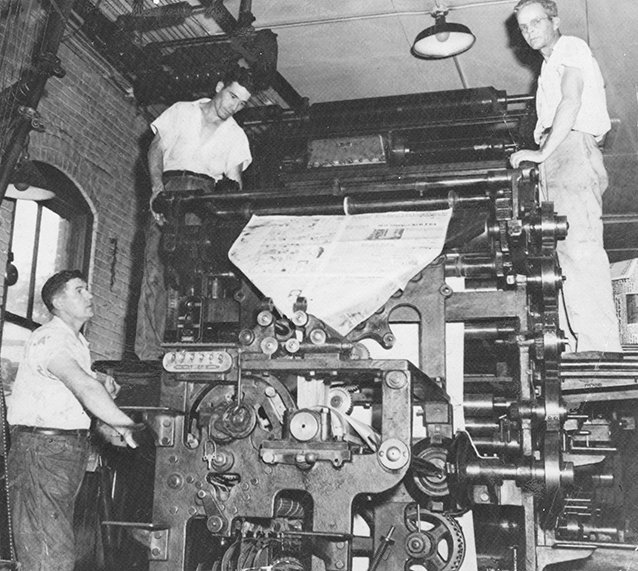The Record 2018, the annual publication of the Garland County Historical Society, is now available, and this year's edition explores the age-old question of whether Hot Springs was truly the "wickedest city in the United States."
"The 59th edition of our journal introduces the reader to fascinating people, many, many photographs, and stories that make our past come to life," Liz Robbins, the executive director of the Historical Society and the editor of The Record 2018, said in a news release.
"Our members will receive the journal as a benefit of membership, and nonmembers can purchase the journal. Its sales help fund our work, as do sales of many books, like 'Then and Now: Hot Springs, Arkansas,' that explore local history," Robbins said.
In this year's edition, local attorney Clay Farrar, an amateur historian who writes a monthly column for The Sentinel-Record, investigates 40 years of illegal gambling and civic corruption, from 1927-1967, that earned the city the "unfortunate title" of "wickedest city in the United States."
"Along the way, he introduces the reader to gangsters, gamblers, a remarkably crooked mayor, and reforming World War II veterans," the release said.
The release said other articles include:
• Cemetery researcher, documentary filmmaker and author Abby Burnett discovers an unusual Greenwood Cemetery grave and researches its inhabitant, famous 19th-century minstrel Billy Rice.
• Mary Bell Hill relates the history of the first Hot Springs National Park superintendent's residence.
• James Byrd explores how African-Americans' experiences as bath house workers, patrons and owners shed light on the social and economic history of the community.
• Most people knew poet Conrad Emil Ritter as the "tamale man." Gail Ashbrook and Robbins tell the story of this colorful character.
• Could tiny Jessieville defeat the powerful Little Rock Tigers? Don Duren "recounts a thrilling 1951 'David vs. Goliath' victory by a Garland County underdog."
• Bobby Anderson remembers growing up in the 1950s from a special perspective, as a newsboy at The Sentinel-Record and New Era. Liz Robbins gives a brief history of the newspapers and provides glimpses of the papers' coverage of World War II.
• Tom Hill shares the tragic story of his uncle, Thomas William Hill -- a tale of murder and justice denied in the 1940s.
• From the Hot Springs Boys Club via Hot Springs High School to the New York Yankees, hometown boy Jack McMahan had an incredible journey. Duren, a baseball historian, takes the reader along on McMahan's exciting ride to the major leagues.
• Gayle C. Newkirk, after years of research, tracked down the connections between pioneer Newkirk families and their descendants in Garland and Saline counties. She presents her findings in an article that brings the "Dark Corner" -- the Marble Township area of Garland County -- to life.
• The Charles and Lola Ferguson family escaped a failing Oklahoma farm during the Dust Bowl and began a new life in Hot Springs. Robbins describes their trek and how their hard work affected Park Avenue, Central Avenue and Albert Pike.
The journal sells for $25, or $30 if mailed, and is available between 9 a.m. and 1 p.m. weekdays at the Garland County Historical Society archives at 328 Quapaw Ave. Call 321-2159 for more information. The Record 2018 can also be ordered through the society's website, http://www.garlandcountyhistoricalsociety.com, or by mail at Garland County Historical Society P.O. Box 21335 Hot Springs, AR 71903.
Local on 12/09/2018